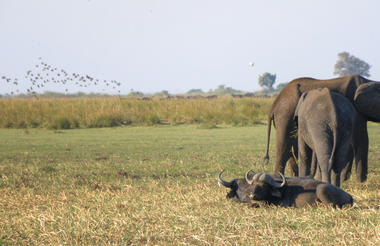Situated along the banks of the Thamalakane River, in the North-West District of Botswana, Maun, a term that derives its name from the San language, meaning "the place of reeds," serves as the administrative town center of Ngamiland. Maun is notoriously known as a "Frontier" town, and is referred to as the 'gateway' to the Okavango Delta and Moremi Game Reserve as most tourists enter these destinations through this buzzing town.
Although classified as one of the fastest growing towns in Botswana, and boasting one of the busiest airports in Southern Africa, Maun still retains much of its old/traditional (village-like) character, which encompasses the old judicial court of chiefs who are still active. Reed and mud hut infrastructures are seen in and around town as well as donkeys/carts and livestock. However, numerous hotels, lodges, bed and breakfasts, shopping malls, post offices, a museum and a big hospital are available too. Maun also serves as the headquarters for the safari industry, tour operators and air charter companies that offer trips into the Okavango Delta and National Parks such as Moremi Game Reserve, Khwai, Savute, Makgadikgadi, Chobe, Nxai Pan to name a few, as well as monumental historical sites like the Tsodilo Hills. Opportunities to visit nearby cultural villages can also be arranged from this central point.
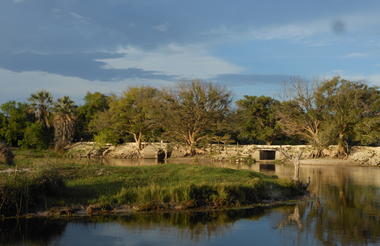


Looking at a map of Botswana, you’d miss Khwai completely if you didn’t know it was there. Wedged between the big-ticket attractions of Chobe National Park to the east and Moremi Game Reserve to the south, Khwai exists as a significant big game destination of its own.
Lying on the eastern fringes of the Okavango Delta with a rich wildlife population and no borders drawn around it on the map, Khwai is often overlooked in favour of its more famous neighbours, though in the winter months it can hold its own for the quality of big game viewing.
During your time here, you’ll spend most days exploring the narrow Khwai River, which forms the natural boundary to the Moremi Game Reserve on the south. The Khwai River is a beacon for wildlife and plays host to leopards stalking lechwe in the long grass, lions swimming from the banks to save their cubs’ during territorial disputes and crocodiles competing with wild dogs for a midday meal of impala.
As Khwai lies outside the parks, it offers the freedom and flexibility normally only possible with the heavier price tag of a private concession. Go off-road for a closer look at sightings, night drive in search of nocturnal species, and, with a little advance planning, head out on game walks to track wildlife on foot.
Khwai is also home to a village community where people live side by side with the resident wildlife. Some camps will offer village visits for a dose of cultural insight to go with your safari. For those not visiting the water camps of the delta, many camps in Khwai offer the chance to get out on a mokoro (traditional canoe), although excursions are less traditional in nature, skirting the riverbanks, rather than open delta floodplains.
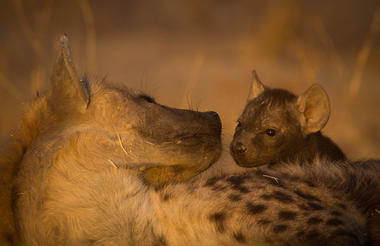
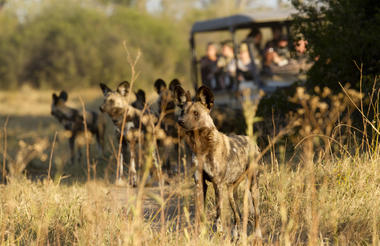
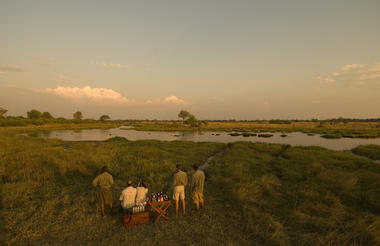
As previously described
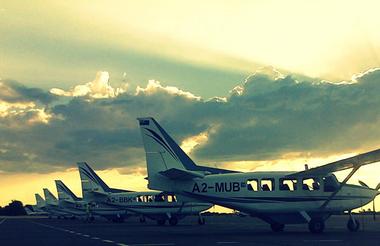


The quirky village of Gweta doesn’t offer the traveller a lot as a destination in its own right and is best visited as a jumping off point for the Makgadikgadi Salt Pans further south. For travellers interested in exploring Gweta, there are a few traditionally painted rondavels to be found on the village’s sandy back roads and village tours can be organised to see the local school, kgotla (traditional court), cattle posts and to sample traditional village fare. The Makgadikgadi Salt Pans are around two hours from Gweta Village by road and the drive requires a 4WD. Due to the lack of signposts and the distance from Gweta, visitors are advised to book a pre-organised excursion out to the salt pans before they arrive.



Tucked away in the northeastern corner of Botswana, on the banks of the famous Chobe River, the quaint little town of Kasane rests on the doorstep of the spectacular Chobe National Park . There are no boundary fences separating the village from the park and game such as elephant and warthog are often spotted roaming around the town and hippos at times come onto land to help themselves to the lush grass of manicured lawns. Wildlife such as the elusive wild dog have been seen along the tar roads on the outskirts of town. Within Kasane behind the police station, an ancient baobab tree stands on display, once serving as a local prison. Visitors can look forward to a multitude of activities including game drives through the park, taking a sunset cruise down the Chobe River, visiting a local village or jumping on a day trip to the breathtaking Victoria Falls. Kasane is strategically located close to the Namibian, Zambian and Zimbabwean borders.
